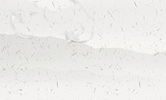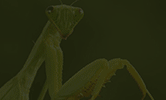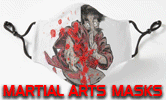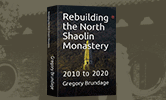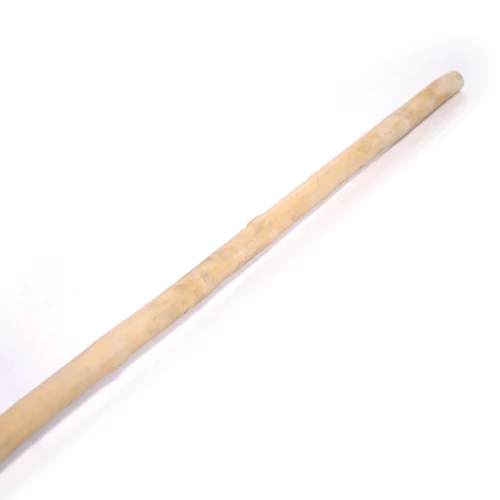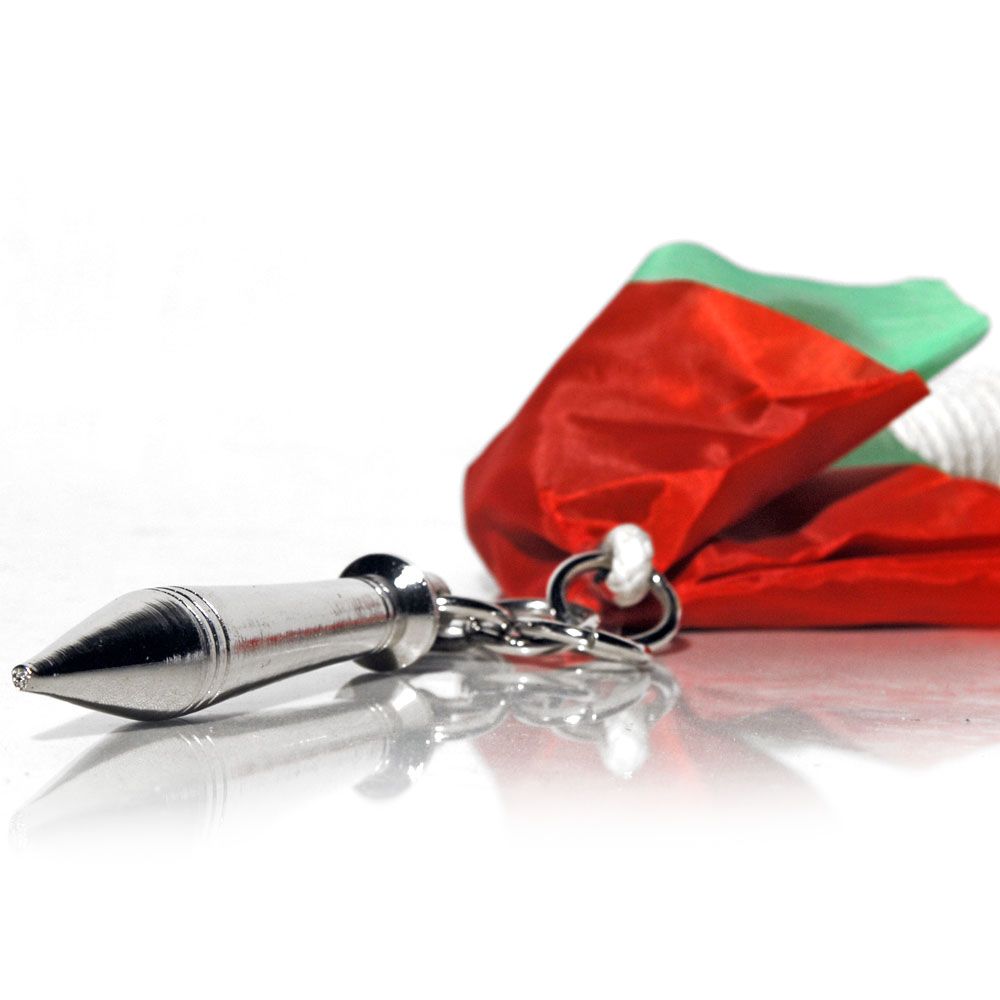Hai Deng, the One-Finger Handstand Master
By Gene Ching
Historians commonly cite the infamous 1991 tour as the first time Shaolin monks set foot in the United States. On that tour was "top ten" master Liang Yiquan, encyclopedia author Shi Deqian, and five monks. It ended with Shi Guolin and Shi Yanming defecting to become the first "American" monks. However, there was an earlier delegation that has been long overlooked. In 1985, Hai Deng came to America to promote the documentary film based upon him. Originally produced by CCTV in 1983, the film was later re-edited into Abbot Hai Deng of Shaolin, which was released on video in America and featured an additional segment on Jet Li.
Hai Deng was controversial too. Even the dates of his life are unclear, ranging from 1902 to 1907 for his birth and 1988 or 1989 for his passing. He was born in Sichuan as Fan Qinghe; his mother died when he was five and his father was killed by bandits when he was twelve. He became a monk at a Buddhist Temple in Jiangyoushen in Sichuan, taking the name Hai Deng ("sea lamp"). Following the 1928 burning of Shaolin, two martial monks from there took refuge in Sichuan. Hai Deng became their disciple, studying tongzigong (child's or virgin work), meihuazhang (plum flower posts) and - what he became his most famous skill - erzhichan (one finger chan 'handstand'). Hai Deng lived at Shaolin for short periods in 1947, 1953 and 1964. At the invitation of the previous abbot, Venerable Shi Xingzhen, to teach there, Hai Deng stayed from 1982 to 1986. During that period, the documentary made him the most famous monk at Shaolin.
Hai Deng came to San Francisco and was the guest of one of America's early pioneers of Buddhism, Venerable Master Hsuan Hua. Two pupils of Master Hua witnessed the event. Reverend Heng Sure and Dr. Martin Verhoeven are both leading American Buddhist teachers from Master Hua's lineage. On a peaceful summer afternoon in the beautiful Berkeley Buddhist Monastery, the venerable reverend and the good doctor reflected upon their encounter with this eminent master over cups of special tea reserved just for monks.
Two Masters Meet at the Gold Mountain
Reverend Heng Sure remembers Hai Deng's arrival at SFO distinctly. "He got off the airplane and he had a hooded sweatshirt, not a good one, kind of a Costco/Walmart hooded sweatshirt. And he had one of those old fashioned airlines bag, made of vinyl; they used to give you these bags for your shoes or something. And he got off the airplane and we're waiting for him to get his bags and he has no other bags. In the airlines bag, he had a toothbrush. And his sweatshirt. That was everything he had. Only that. We asked his cadre, 'Doesn't he have any suitcases?' and they said somebody tried to give him a suitcase but he gave it away."
Later, Hai Deng explained his lack of possessions during a lecture that Heng Sure attended. Heng Sure treasures the dialogs between his master and Hai Deng. "Shifu brought Hai Deng to the monastery, Gold Mountain, directly from the airport. Hai Deng said, 'I've told you I cannot accept offerings. Everything you take accrues a debt and you have to pay it back later, maybe in fur and horns,' meaning that you lose your human body. And so we asked Abbot Hua, 'Shifu, is it true that everything, every offering, we accept from laypeople is going to accrue a debt?' And Shifu said, 'Hai Deng can say that because he really lives that way. Besides, everyone in China is poor. If you don't let them give you blessings, how are they ever going to get their virtues? You have to be compassionate. Take on a little debt. That's what bodhisattvas do.' And then he said, 'Hai Deng is walking a different path than I am.' And we were all ears. Then Shifu said, 'Would you say that's true, Hai Deng?' And Hai Deng said, 'What do you mean?' And Shifu said, 'We are dharma brothers. We are peers. But our take-off point is different. I left home because of compassion. You left home because of vengeance.' Hai Deng said, 'That's correct.' Shifu said that Hai Deng's father was killed by bandits or by some marauding military unit. He left home as a monk with the vow that he was going to strengthen himself so he could defeat all of his enemies and he was going to get back at some point. So he cultivated the path of what was called the huiji jingang - the filthy tracks vajra. Vajra spirits are like bodhisattvas in their strength and power, but their vows are to smash demons. They're the real deep vow-takers, and Hai Deng was motivated by that. Master Hua left home with the wish to rescue everyone, to end suffering, but they both made deep vows."
Dr. Verhoeven remembers his first impression of Hai Deng. "Hai Deng was quite small. I was surprised because we heard about this great martial artist and he was just this real tiny guy. I remember he was getting out of the car and Shifu reached over to give him a hand. And Hai Deng comes out of the car with a leap. And he looks at Shifu and Shifu just smiles. Hai Deng was quite surprising."
"He was really short, slightly stooped," adds Heng Sure. "At this point he had a profound tremor. He was already showing signs of the disease that finally took him, which Master Hua described as a karmic illness - a debt for having killed someone."
"Later, Hai Deng asked Shifu about his poetry," adds Dr. Verhoeven, "and Shifu said, 'Well, I'll recite a couple,' and Shifu started to recite, in the Chinese manner, Chan poetry. Hai Deng was memorized."
"He got very subdued," reflects Heng Sure.
Dr. Verhoeven continued, "He was watching, and Shifu would see him and Hai Deng said, 'Woah, what kung fu!' And we're all going, 'What? What?' and Shifu said, 'You guys have been with me all this time and you still don't know anything about me.' I thought my own teacher had no martial skills. I'm sitting and watching my teacher, and he's talking about Hai Deng and martial arts, and he says, 'You shouldn't think that people that show it, have it, and that those who don't show it, don't have it.' And I'm watching really closely like, "What's he doing?" and all of a sudden his hand was on my forehead. My teacher. It was just that fast. And he pulled it back and he just laughed. He and Hai Deng had a very interesting relationship about that."
Studying Virgin Kung Fu under Master Hai Deng
"I think it was either that day or the next day he started his first class," recounts Heng Sure, "and Shifu said, 'Oh! All of my disciples to come and learn. Don't miss the opportunity to come and study with master Hai Deng.' So Hai Deng quickly organized this class, and he said very clearly at the beginning, 'These exercises are for long life. These are for health. Health affects ability more than any other thing.' I took notes. I recorded all of the exercises that he gave us.
"Marty had a tae kwon do black belt back when he was in college. Then he came out here and studied with Master Y.C. Chiang. Master Chiang learned tai chi from Kuo Lien Ying. So he had this martial arts background, and when he met Hai Deng, Shifu introduced Marty first saying, 'He's our martial artist' (Dr. Verhoeven chuckles), and Hai Deng goes, 'Oh! Lao Jiaoshi' (old teacher), then he looked at him and he looked at me and he went, 'Daxuesheng' (college students). We were immediately classified as college students, which is small in terms of martial arts. He pegged us immediately as not having respect." The derogatory comment "college students" was ironic since by some accounts Hai Deng graduated from Sichuan University.
Dr. Verhoeven was sent to visit Hai Deng with fellow pupil Heng Wu, who later returned to lay life. "Heng Wu and I went to see him when he was staying at the Geary. Shifu said go introduce yourselves to see whether we could study or not. We did tongzigong exercises right there in the room. Hai Deng showed him his variation of the classic pose danbichen (single arm support). And I was, 'Oh sure, we could do that'. So he showed us what to do and Heng Wu and I did it, no problem. 'OK, keep going,' and Heng and I were just 'Ooow.' He said 'Well, when you get up to ten minutes on each side, then you're really teachable. Right now you don't have it.' I think we were only three or four minutes each and that was really tough. Those were the beginning exercises he taught us?. We were training with him and he'd come up and do an adjustment on us and I could just feel his energy. He was always very gentle. He never put you down. He was never derisive. He made fun of us as college kids, but that was sort of his standard kind of thing.
"He taught us all internal strengthening exercises - things that on the outside don't look impressive, but he said you have to build your core. I was surprised because I knew there was inner and outer and there was soft and hard, but he didn't make these distinctions. He saw it as one continuum, so that the outer exercises, the Shaolin stuff he was teaching, had that soft inner. His own exercises when I watched him work were very simple. It didn't even look like a Tai Chi set. It just looked like some old person out there. He'd do it early in the morning and it didn't appear to be a set or anything. But I never saw him do anything vigorously hard, except a couple punches which I barely saw, and breaking the sand bag with his fingers. So it's very funny. On one hand, he taught some really vigorous stuff. Some of the stuff he taught us, the kicks and punches, was really vigorous. But he was always stressing that it came from qigong. The tongzigong exercises were to build qigong?.and he said, 'This teaches how to subdue yourself so much that you have no urge to fight. Because if you have no urge to fight, you never do fight and then you survive long.'
"We were trained pretty hard. He said we had a little potential, but we should memorize the sutra first. He felt you had to have your basis in the classics, which I thought was really interesting. There's a story too. With Hung Wu, he said, 'Learn the classics first before I teach you.' Hai Deng had memorized the Four Books." The 'Four Books' are Analects of Confucius, Doctrine of the Mean, Great Learning and Mencius. Hung Wu was a teenager at the time.
Heng Sure smirks at the memory and says, "Many California high school kids are sure going to memorize the Four Books in Chinese. Dig right in. No way."
Dr. Verhoeven adds, "He really lectured. He really lectured on the Buddhist texts. It wasn't just martial. There was this literary side. He actually put more energy into that than he put into teaching us. I think he was really happy to be invited to lecture dharma because that's how he really saw himself. He didn't really identify with this glitz."
The San Francisco Film Premiere
"One of the events that Hai Deng visited in San Francisco was, we went to this movie theater," recounts Heng Sure. "It was the Warfield or somewhere. It was one of those movie theaters where you want to watch your seat or you'll stick to your seat. So they played the film and it was an uncut version made by the film director who was there in the audience."
Dr. Verhoeven chuckles at that memory too. "We were watching the movie and he went 'plbbt plbbt (blowing raspberries)' like that. And he was saying, 'You see all that?' which we went 'ooh ooh!' to jumping, spinning kicks. He said, 'That's theatrics. That's gymnastics. That's not the real thing.' And then we'd see something that we were just 'eh' and he'd say, 'That's the real stuff.' And so to us, what was apparent was not the real stuff. And what was not apparent - very soft - he saw as real. The Hollywood type of Shaolin is the most dramatic thing. And then he said, 'In fighting, why do you want to go up? What is that about? One punch should do it. This leaping around and flying in the air is just stupid. It's acrobatics and it's vulnerability. Real martial artists don't usually get into fights, and when they do, it's one punch. This stuff is for the movies.'"
Heng Sure continues, "After the film, Hai Deng came out on the stage and said, 'Anybody in the audience who would like to test their skill, please come up on stage now.' And here, was a Chinatown audience. There was this big black guy and there was an off-duty policeman, and a marine or something, and he said, 'OK, take your best shot.' They all charged him at once. And he just took them off their feet and pushed them back. They flew. It was the classic standard martial arts demonstration. You see it."
Dr. Verhoeven saw another such demonstration when he followed Hai Deng back to Hong Kong after his American tour concluded. "We studied in Hong Kong. We couldn't go to China because we didn't have the papers. Hai Deng's reputation always preceded him. The Hong Kong television people came and they wanted to see if he really had the ability to take blows: paidagong . They said, 'We heard about this but we don't believe it and we want to test you on television.' So they set him up on HKTV, and then they said, 'We want you to strip down to a t-shirt and we're going to do the hitting. We're not going to let your disciples do it because we think they probably have ways to fake punching.' He said you couldn't hit the head. Any place else was fair. And so they hit him. And he passed. It was really quite remarkable."
The Legacy of Hai Deng
Both Reverend Heng Sure and Dr. Verhoeven still hold a deep respect for Master Hai Deng. "All the time I saw him," comments Dr. Verhoeven in awe, "all he ate was a bowl of rice gruel with a small amount of some sort of vegetable sliced on the top."
Heng Sure had another story that was even more remarkable. "Hai Deng was at Gold Mountain Monastery on 15th Street in San Francisco. I came down one day and I had a message for Hai Deng from Shifu. So I said, 'Hai Deng Laoshi?' and Hai Deng goes like this (turns slowly) and he looked at me and he opened his eyes. And I saw this incredible light. It was amazing. It was shocking because there was no reason for him to give me the whammy. He raised his eyes and he turned and he looked at me. He was clearly showing me something. And I was like, 'Oh!' and I went back up and I said, 'Shifu, Hai Deng fashi (teacher of the way) has got this really incredible light inside.' Shifu said, 'Of course! He's full. He's never been near a woman. Not like you.' Oh, I get it. So he's full. His virtue is full. That's the light. He left home out of vengeance, in order to kill the bandits. And he was pure his whole life, so he was a virgin. So that tongzigong - virgin skill - was, in his case, real."
Dr. Verhoeven relates another story about the time Hai Deng was to be taken down by the Red Guard. "Hai Deng said, 'There's many of you, and you probably should know, I'll get ten of you before you get me. Which ten is it going to be?' There was this pause. And gradually they came, some of the better ones, to study with him, to learn. Fan Lingyin (one of Hai Deng's top disciples who had accompanied him to America) was one of those guys who came out of that. So the new director protected him, claiming he was going to be a military trainer. He also said that they asked him to do an autobiography, and he did it, then the guards made it politically correct. When they came to him to have him sign it, they said, 'Sign it please,' and he wrote in Chinese, 'I did not write this,' and that pretty much displayed the authenticity of that work. He was a survivor, but he was teaching people he probably would not have approved of teaching. Still, it was his way of keeping tradition alive. I think he was disappointed that he didn't have any true monastic disciples, but they're real hard to keep.
"I was aware of the sacrifices he must have made to achieve that. They came from an incredible amount of time in practice. We were soft. There is no way we could discipline ourselves unless we completely 100% worked ourselves to death. And he was saying, even at that age - I was what, thirty something - it was a little late to be starting. 'Stick with the scholarship stuff. You have to start young and you have to work incredibly hard.' So I was humbled by him - the level of skill and what was behind that and realizing that I didn't have that in me, to make that commitment in my life."
Hai Deng's fame led to some jealousy at Shaolin, and there were attempts to expunge him from Shaolin's official records. In 1987, a Sichuan TV station ran a 20-episode miniseries on Hai Deng, but it was a fictional soap opera, which further exacerbated hard feelings towards him. Two books were attributed to him: Qigong Essence (qigong jingyao) and a collection of 220 of his poems titled Shaolin Cloud Water Poem Collection (Shaolin yunxue shiji - note yunxue is also the name of a hall within Shaolin where Hai Deng once resided). There's a large school in Jiangyou that is run by Fan Lingyin, the Jiangyoushi Hai Deng Wuguan
"It wasn't a joke," states Heng Sure gravely, "growing up in the times he grew up, with that incredible physical strength that he had, the fact that he still a virgin. He was an actual Buddhist monk. As college students, we said, 'Oh well, you could apply here. Maybe you get a fellowship there.' He didn't have all those choices. He sacrificed for the path that he took. He didn't have lots of safety nets behind him. The word that we had was that he was fifty times all China martial arts champion. He had fifty competitions, not just years, but competitions, is what we'd heard, but it'd be hard to verify. What does it take to meet the Taoists, to meet the ruffians, to meet the yahoos, other monks, certainly some psychopaths and still manage to come out on top and stay a Buddhist monk? What was that like? How did he do that? So here he was, he was the real thing."
Click here for Feature Articles from this issue and others published in
2007 .
About
Gene Ching :
Gene Ching is Associate Publisher for Kung Fu Tai Chi magazine.
Reverend Heng Sure is the director of Berkeley Buddhist Monastery. He was ordained as a Buddhist monk in 1976. For the sake of world peace, he undertook an over six hundred mile pilgrimage from South Pasadena to the City of Ten Thousand Buddhas in Ukiah, taking three steps and one bow to cover the entire journey. He took this two year pilgrimage observing the practice of total silence.
Dr. Martin Verhoeven also undertook the bowing pilgrimage dedicated to world peace with Reverend Heng Sure. Both are students of Venerable Master Hsuan Hua. They can be reached at the Berkeley Buddhist Monastery, 2304 McKinley Ave., Berkeley, CA 94703, (510) 848-3440 - www.berkeleymonastery.org. All photos are copyright Dharma Realm Buddhist Association - www.drba.org.
![]() Print Friendly Version of This Article
Print Friendly Version of This Article

